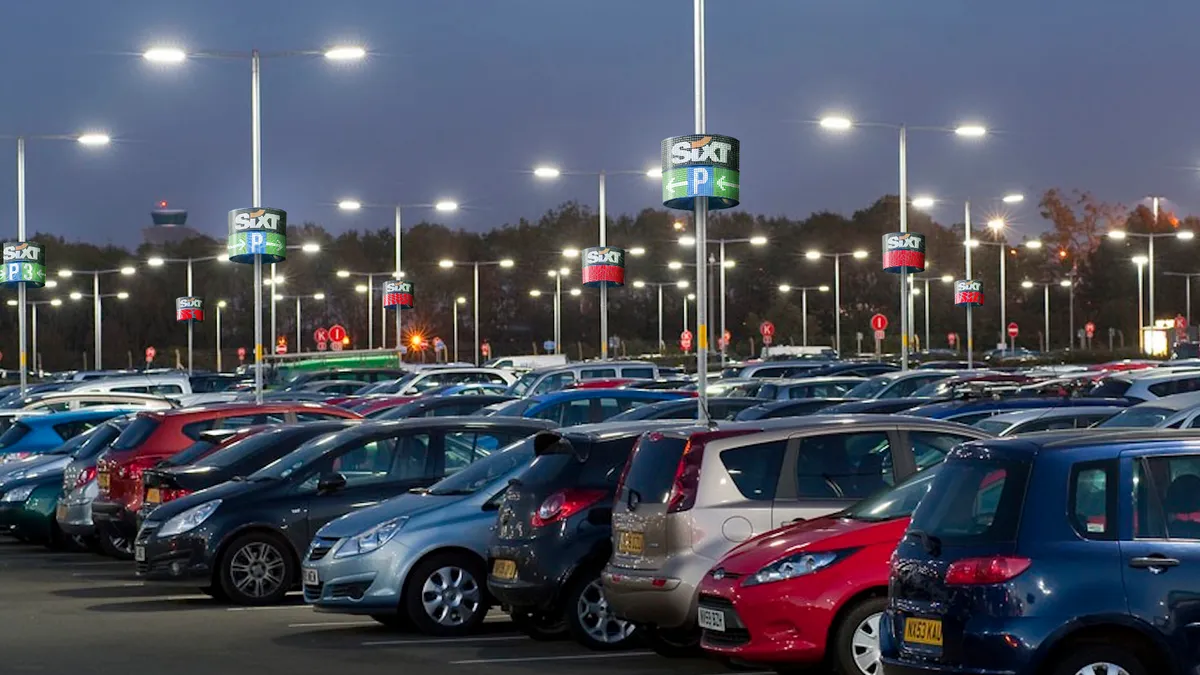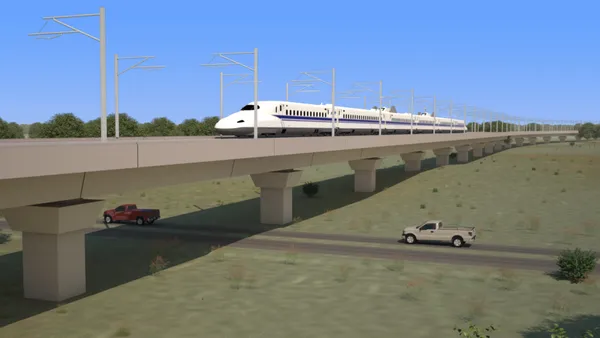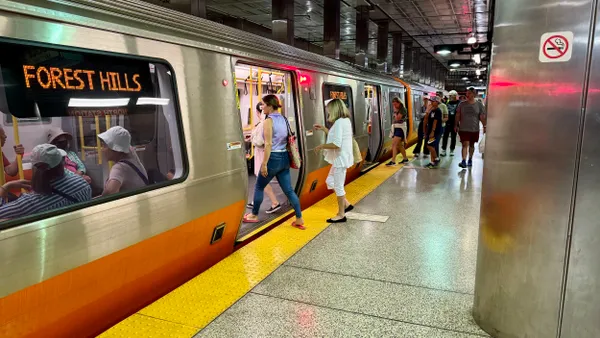Dive Brief:
- City residents searching for parking could start to see new signs directing them to spaces in open-air lots and providing real-time traffic information.
- Parking technology provider Cleverciti Systems launched Circ360, which it claims is the industry’s first 360-degree overhead display and can be mounted on lampposts of any size.
- "The Circ360 turns the daily headache of parking into a simple service that retail property owners can offer their tenants and guests," Thomas Hohenacker, founder and CEO of Cleverciti Systems, said in a statement.
Dive Insight:
The issue of parking has long been a challenge for cities, with the influx of people cruising for on-street spaces one of the major causes of urban congestion. There have been a variety of suggestions to curb that phenomenon, including from UCLA parking guru Donald Shoup, who has advocated for dynamic prices for on-street parking. San Francisco has enacted demand-based pricing at 7,000 metered spaces and 14 city-managed garages, with the hope that it increases turnover and reduces congestion.
These new 360-degree signs could help alleviate some of that congestion as they show drivers where empty parking spaces are and could even show up-to-date pricing information. They will initially roll out in open-air parking lots like those found at shopping malls. If successful, they could present an intriguing option for city leaders who want to use them more widely.
With an option to host advertising on Circ360, it could also present another revenue stream for cash-strapped cities. It is also in keeping with a broader theme in cities to use streetlights as an avenue for innovation, including having them connected to smartphone apps. But the cost may be prohibitive for cities, and management of the program through their IT department or a contracted company could prove difficult with staff and money already stretched.
Cities are trying to be creative with their parking options: Seattle, for example, has removed requirements for some residential buildings to have off-street parking, while Oakland, CA has automated one of its garages. With a desire to reduce congestion and move drivers towards open spaces, while at the same time paving the way for autonomous vehicles and other innovations, this technology could help solve one of urban areas’ most pressing problems.











